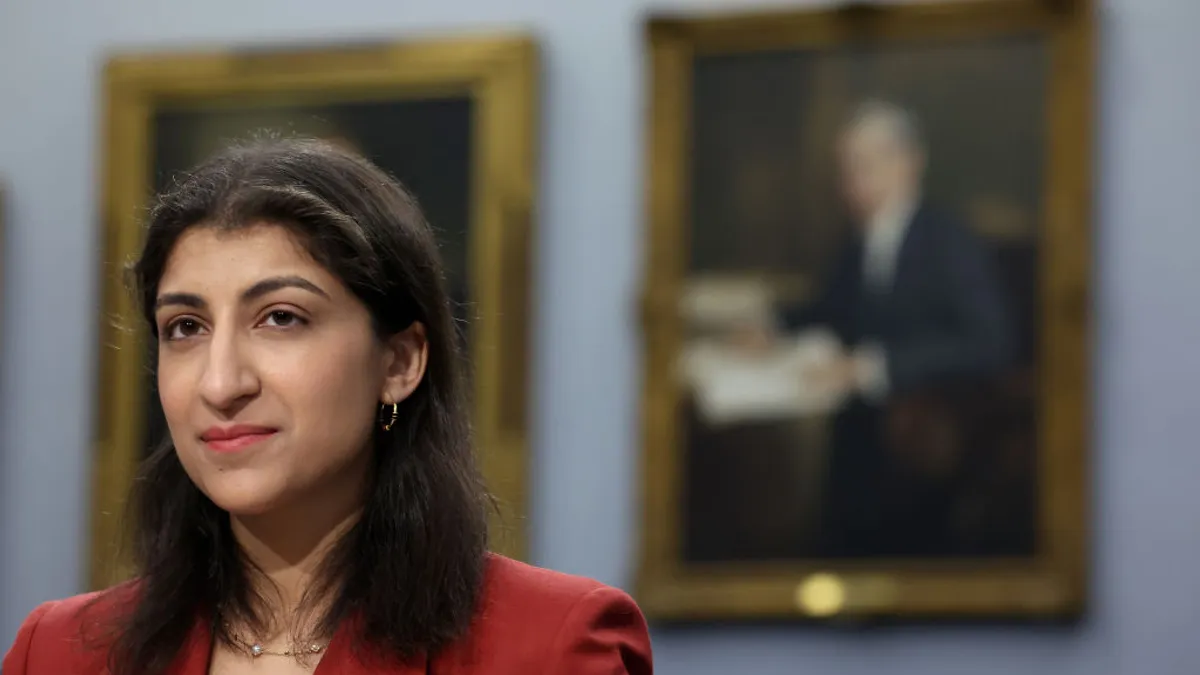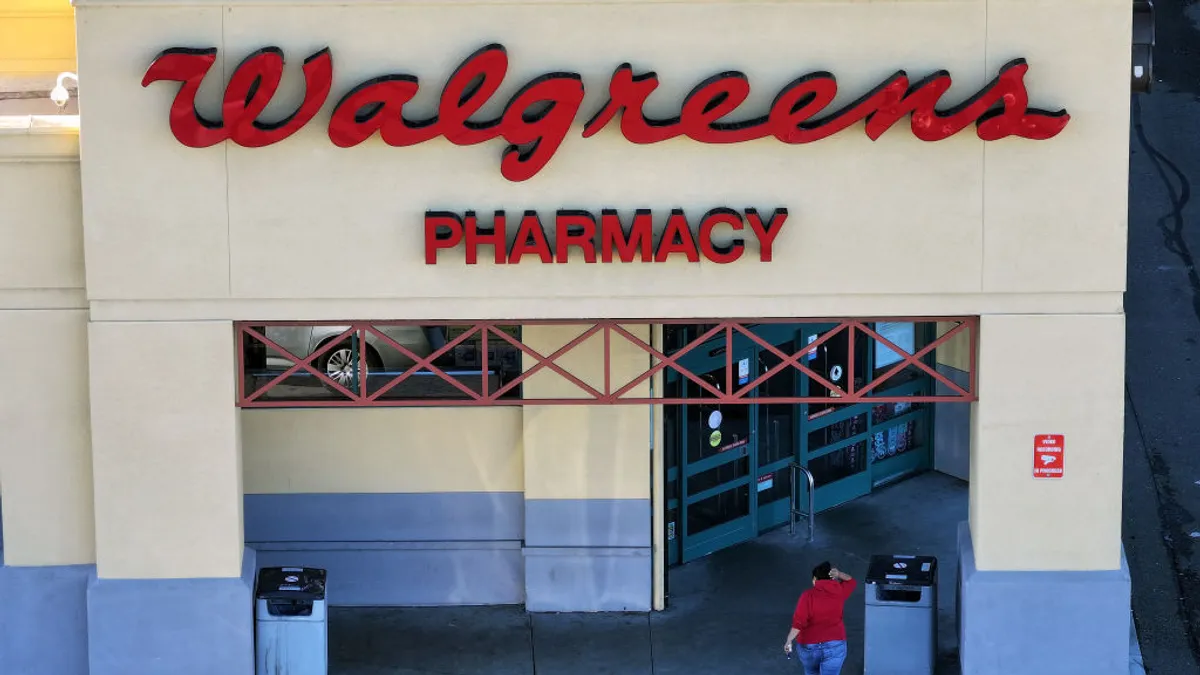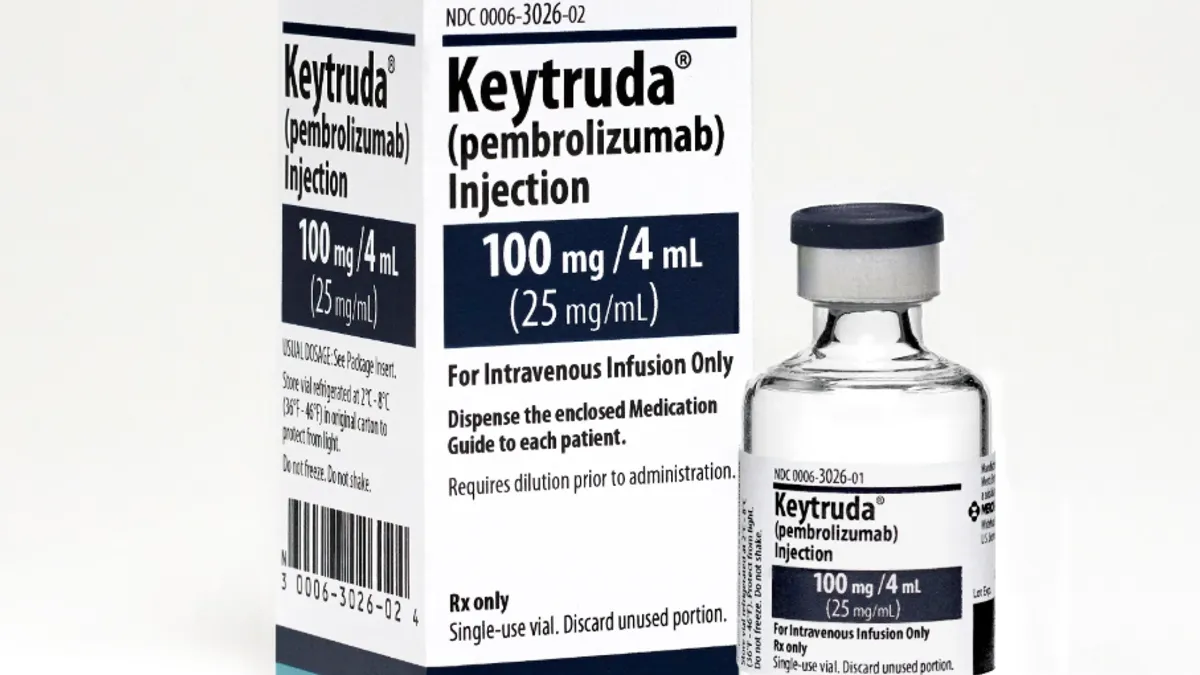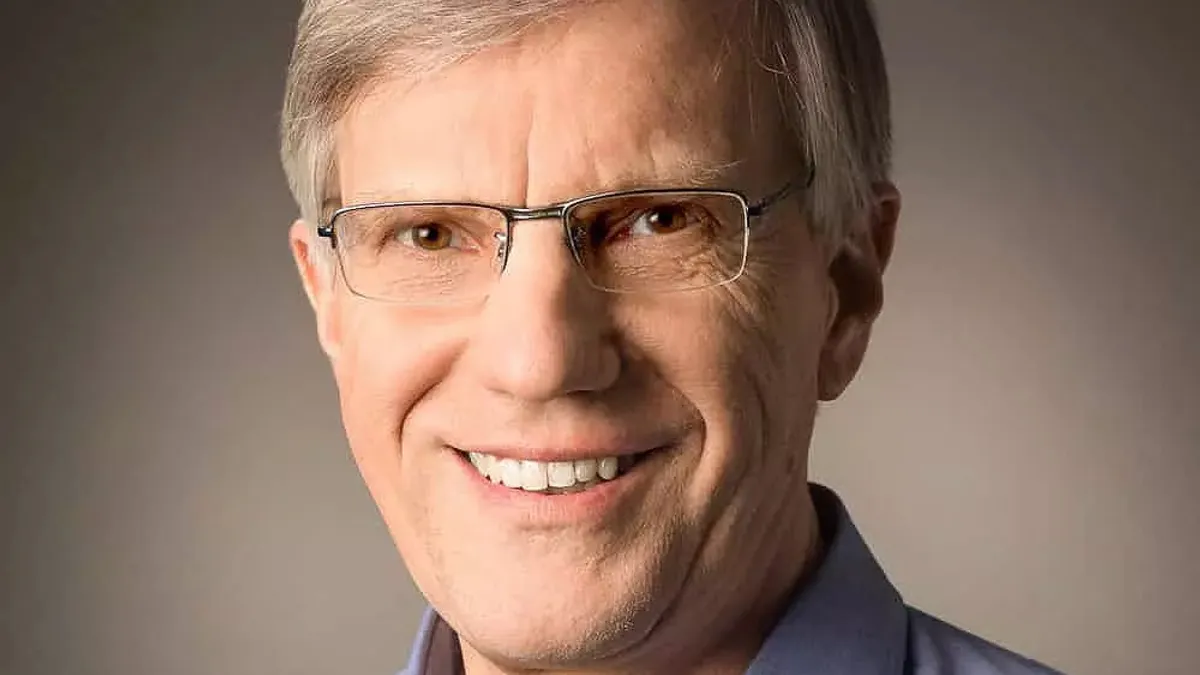John Glasspool
Changing the Access Conversation
Driven to innovate by People
Market access is dead and the new driver of change and progress in healthcare is patient access. That’s the view of John Glasspool, who heads Baxter’s global market development program.
With a dedicated focus on patient interests, Baxter has charged Mr. Glasspool with bringing his more than 25 years of experience as a patient access advocate to help the company lead the shift in the industry from a product driven market access approach to one that is focused on creating value for patients.
Since joining Baxter two years ago, Mr. Glasspool has supported implementation of a new strategy throughout Baxter’s BioScience business.
His patient access strategy is driving more value for patients, the company and the healthcare system at large. Being able to redefine the company’s global market access strategy and introduce treatments to communities in need around the world has been a true highlight for Mr. Glasspool and he’s overcome challenges like the need to redefine the company’s goals of market entry beyond simply gaining regulatory approval.
In addition, Mr. Glasspool is architecting Baxter’s emerging therapies strategy, where he has continued to place patients at the center of all strategic decision making.
A key component of this strategy is Mr. Glasspool’s efforts to lead Baxter’s into the oncology landscape, an area of tremendous unmet patient need. Through Mr. Glasspool’s leadership, Baxter BioScience is focusing on niche areas in oncology where its deep expertise in bleeding disorders and immunological conditions in developing new treatments can be applied, which will help expand the scope of the new independent BioScience company in 2015.
“Part of my goal through this process is to ensure that we effectively introduce the BioScience business as an innovation-oriented biopharmaceutical firm, focused on hemophilia, biotherapeutics, and emerging therapies in areas such as oncology and biosimilars," he says.
He relentlessly challenges the standard of care on patients’ behalf and, as a result, aims to meaningfully improve their lives. He has positively disrupted traditional thinking in an effort to improve outcomes across the broad range of diseases he has touched throughout his career
Mr. Glasspool’s aspiration to make a difference in the lives of patients is driven by an experience he had early on in his career when he was working at a company that just launched a new treatment option for epilepsy. The new product had some challenging side-effects, but was considered a viable treatment option for some individuals.
Through a patient advocate, Mr. Glasspool learned about a 45-year-old patient who suffered multiple epileptic seizures every day of his life. The condition was so debilitating that he had rarely left his home since childhood. He was placed in a treatment facility so he could receive the level of care he needed And as a last resort option, received treatment with the new epilepsy drug. His life was transformed: he became seizure-free, returned home, and was able to work.
This experience demonstrated to Mr. Glasspool that what he was doing could make a major difference in people’s lives.
Since then, Mr. Glasspool has held a number of leadership roles in the industry, serving 12 years at Johnson & Johnson and 10 years at Novartis before joining Baxter.
His passion for patients and hard work has led him to many treatment discoveries, and helped him secure a patent for a therapy to enhance effectiveness of acetyl cholinesterase inhibitor in Alzheimer’s disease patients as well as a patent for the use of iron chelators to treat heart attacks.
Mr. Glasspool measures his success by the lives that are impacted by these products.
He inspires those he works with by helping them identify and harness their own skills and passion to meet their professional goals. As he continually challenges himself to improve and innovate, he shares these sentiments to motivate his teams by showing them that he cares about their own needs and passions.
For Mr. Glasspool, success comes from always doing what you enjoy.
Getting to Know…
John Glasspool
Title: Global Head of Emerging Therapies and Market Development, Baxter BioScience
Company: Baxter Healthcare Corp.
Education: B.A., (Hons), Oxford Brookes University
Family: Wife, Sue; daughter, Samantha; cat, Sushi
Bucket List: Hike Machu Picchu
Awards/Honors: J&J Gold Club
Associations: Board of Directors, BIO; European Vaccine Manufacturer’s Association
Social Media: LinkedIn
Regina Holliday
The Back Story
Driven to innovate by Necessity
Regina Holliday doesn’t just wear her heart on her sleeve; she paints it on people’s backs. The creator of the Walking Gallery, a movement that promotes patient-centered care policy, Ms. Holliday uses art to depict a unique patient history or personal story. Everyone has a story to tell, and now because of Ms. Holliday’s artistic and activist efforts, more than 300 people have had their story painted on the backs of their business jackets. The idea is that every time the provider of the patient story — the Walker — wears his or her jacket, he or she is spreading awareness of the need to change the healthcare system to become more patient-centric.
The artist, speaker, author, and patient rights advocate began her mission after losing her husband Frederick Allen Holliday II to cancer. The Hollidays felt that reviewing the information and details of his care would shed some light on his condition and allow them to participate in his care, however they were denied access to his electronic medical records. Decisions were being made without their input. The hospital told them they must wait 21 days and pay 73 cents per page in order to review the details of his care. Within 11 weeks, Ms. Holliday’s husband was dead.
After his death in 2009, she began painting a large public mural entitled “73 cents" at 5001 Connecticut Ave., Washington, D.C. The mural depicts the Holliday family’s journey through the medical system during Mr. Holliday’s cancer care and their desperate attempt to access his medical records.
She has since painted a series of murals depicting the need for clarity and transparency in medical records. Her artwork has appeared in peer-reviewed in journals, such as the BMJ and APA. She also has written a book about the experience, The Walking Wall: 73 Cents to the Walking Gallery.
According to Ms. Holliday, paint and patients, pills and policy, all come together within The Walking Gallery of Healthcare.
By wearing their story on their backs, patients are sharing their voice, and by doing so, they are changing the conversation.
“The walking wall of individuals who wear personal patient narrative paintings on their backs is changing minds and opening hearts," Ms. Holliday says. “They are attending medical conferences where often there isn’t a patient speaker on the dais or in the audience."
The Walking Gallery movement hopes to diversify the source content that is used to create the foundation for patient-centered care policy. When creating national health policy, medical professionals and government officials are often more reliant on aggregate data sets, bar charts, graphs, and statistics, rather than the whole picture of care, the personal patient narrative and the individual human face.
To continue to spread awareness, Ms. Holliday sets up her easel at industry conferences and paints a story from what she hears going on around her, and she often presents her own story on stage to encourage others to join in the fight for patient power. Starting out as a one-woman activist, she now has other artists assisting in creating the Walking Gallery.
“I am on a mission to create a better system of care for us all," she says. “I bare my soul and ask people to meet me at the darkest point in life and we overcome it together."
As a participatory medicine advocate, Ms. Holliday writes about the need for HIT and timely data access for patients and families on her medical advocacy blog. She is active on Twitter and Facebook, using social media to further advance her cause.
A recent highlight for Ms. Holliday came in 2010 when she had the opportunity to testify about Meaningful Use. She was honored to represent the patient and caregiver voice at the Stage One Meaningful Use Announcement on July 13, 2010 at Health And Human Services in Washington, D.C. Looking ahead, she is planning a medical conference in rural Western Maryland in 2015.
A true extrovert, she is sometimes too loud, publicly emotional, and sometimes she is angry, but she is always passionate about her cause and is committed to attacking the biggest challenge in healthcare: apathy.
“There is now greater recognition of the power of the patient voice, which is offering more opportunities to take part in scientific research and health policy," she says.
Getting to Know…
Regina Sue Holliday
Title: Artist, Activist
Company: The Walking Gallery of Healthcare
Family: Widow; two sons
Hobbies: Scrapbooking
Bucket List: Run for public office; fund an in-patient hospice facility in Garrett County, Md.
Associations: Rotary International, Grantsville Maryland Chapter; Garret County Arts Council; Greater Grantsville Business Association
Tweet at: @ReginaHolliday
Social Media: LinkedIn, Twitter, Facebook, Google+, YouTube, Pinterest, Instagram, Flickr
Aaron Fleishman
Progressive Advocacy Partner
Driven to innovate by People
Aaron Fleishman represents the next generation of forward-looking patient recruitment thought leaders.
Mr. Fleishman’s mission is simple: to keep patients at the forefront of clinical research studies through strategic partnerships and engaging, novel technologies.
Through his role at BBK Worldwide, he is demonstrating that strategic partnerships are leading the way for unparalleled, positive change within the clinical R&D industry.
Mr. Fleishman and his team of social and advocacy specialists work directly with clinical research sponsors, physicians, advocacy organizations, and patient thought leaders to create innovative strategies for patient recruitment and retention.
The team concepts, develops, and executes multinational campaigns to generate awareness surrounding clinical research opportunities, educates individuals about clinical research, and makes study participants and their caregivers as comfortable as possible. Under Mr. Fleishman’s leadership, the team is building an advocacy framework for global patient recruitment.
From blog posts to large-scale awareness initiatives, his efforts have educated and promoted clinical research study participation to an estimated 10,000 patients in various therapeutic areas, including endocrinology, psychopharmacology, and gastroenterology.
His contributions are helping to elevate the patient volunteers in research so their voices are heard.
Mr. Fleishman has worked with numerous organizations and advocacy groups to better understand patients’ thoughts and feelings about what motivates them to join a clinical trial, which has resulted in the development of new educational and interactive resources to help improve the overall study participation experience.
Mr. Fleishman was an influential contributor to BBK’s online healthcare initiative, Calling All Types, a 2011 joint project with PatientsLikeMe and the American Diabetes Association. Calling All Types was a launching point to educate individuals living with diabetes about clinical research opportunities through an interactive online health community.
His role in this project was to find and build relationships with advocacy groups to promote this initiative. His passion and willingness to engage with even the smallest of advocacy organizations generated more than 400 community members.
Through his work with advocacy groups, Mr. Fleishman has developed several recent patient recruitment and retention products. One that he counts as a career highlight is My Clinical Study Buddy, which is a mobile application for patients enrolled in clinical research studies, which helps to familiarize them with study visits and procedures through interactive content such as games and videos.
Other notable developments include Clinical Study Notifier, a mobile application that allows patients to be notified of clinical research opportunities in their area in the event that they do not qualify for a BBK-supported clinical research study but want to be kept informed of future opportunities; and Advocacy Outreach and Engagement, an extensive program that aims to engage advocacy groups and build meaningful, long-term relationships between clinical research sponsors and influential leaders and groups.
For global efforts, Mr. Fleishman’s team collaborates with international partners to research and develop country-specific strategies, including: Ready. Set. Go. Arrive, a full-service concierge program, which schedules and manages all travel-related logistics for clinical research study participants, ensuring patients and their families get to and from study visits as simply and seamlessly as possible; Pave the Way/Recruitment Jumpstart, a geo-targeted and grassroots program that establishes social networks around a specific condition before a study’s first-patient-in date, enabling clinical research sponsors to educate patients, caregivers, and advocates in a transparent and authentic way; Social Media Listening, a program that targets, observes, and records much of the activity taking place on social media portals and uses information to direct, refine, and target the content and call-to-action messaging of advertising and outreach tactics.
Most recently, he has guided his team in the development of BBK’s patient recruitment eBook series.
Also notable, Mr. Fleishman has developed more than 230 blog posts in two years for BBK Worldwide, growing the blog audience by 400%.
Disagreeing that it’s always important to look for that homerun idea, Mr. Fleishman says it’s often the small steps taken along the way that make the biggest impact.
He remains committed to pushing the industry outside of its comfort zone and leveraging innovative technologies and tactics to reach people who could truly benefit from clinical trials.
A consummate professional, Mr. Fleishman is a team player who has the respect of all his colleagues. He leads by example and works hard to establish a culture where everyone is pushing each other to achieve success individually and as a team.
But while Mr. Fleishman appears to be a natural in the field of patient recruitment, he says finding his place in the industry was a big challenge.
“Through my family, I grew up knowing about patient recruitment and the concept of clinical trials since I was a child," he says. “I never imagined that I would end up in this industry. I always wanted to be in music management or sports management. It took me several years out of college to find my groove and to find a spot within this industry that I could carve out as my own and make an impact."
Getting to Know…
Aaron Fleishman
Title: Social Innovation and Strategic Consultation
Company: BBK Worldwide
Education: B.S., Hartwick College
Family: Brother, David; mother, Joan; father, Steven
Hobbies: Coaching and playing baseball, playing guitar
Bucket List: Visit every major league baseball stadium in the country
Tweet at: @afleishmanbbk
Social Media: LinkedIn, Twitter, Facebook, Google+, YouTube, Pinterest, Instagram, Flickr
Dr. Alessandro Riva
Transforming Cancer Treatment
Driven to innovate by Patients
A life committed to the service of patients: these simple words define Alessandro Riva, M.D. His unrelenting passion for making a difference in the lives of cancer patients makes him a truly inspiring leader.
As global head of oncology development and medical affairs, Dr. Riva has transformed Novartis’ oncology pipelines into one of the industry’s best.
When he joined Novartis in 2005, the department had five compounds in the pipeline and 380 associates. As of this year, the Novartis oncology pipeline has grown to more than 17 compounds and the department now has 2,200 employees. Turning Novartis Oncology into a highly efficient global development organization has been a challenge but also very rewarding.
During his tenure the company has seen the development and regulatory approvals of many innovative cancer therapies, including Tasigna (nilotinib) for untreated and previously treated Ph+ chronic myeloid leukemia; Afinitor (everolimus) for advanced kidney cancer and some types of pancreatic cancer and breast cancer; Jakavi (ruxolitinib) for myelofibrosis; Gleevec (imatinib) for the adjuvant setting of gastrointestinal stromal tumors; Femara (letrozole) for the adjuvant setting of breast cancer; and Signifor (pasireotide) for Cushing’s disease.
A key component of this success has been Dr. Riva’s willingness to take risks for principles and research he believes in. For example, several years ago he passionately championed the research for Afinitor in multiple indications, motivated by his belief in the potential of this compound to treat several different types of cancer and rare diseases. Today, Afinitor is approved in more than 100 countries and is used to treat five indications, including HR+/HER2-negative advanced breast cancer, the most common type of advanced breast cancer, and a rare genetic disorder affecting children and adults called tuberous sclerosis complex.
Bringing so many active new molecular entities to patients is the high point of his career.
In recognition of his success in bringing innovative medicines to patients, Dr. Riva was awarded the Novartis CEO Innovation Award in January 2013.
His ability to take charge and lead is an asset to the Novartis Group and it was no surprise that Dr. Riva was immediately asked to assume the role of president (ad interim) of the oncology business unit earlier this year. In this position he became a key player in preparing for the $14.5 billion acquisition of GlaxoSmithKline’s oncology pipeline, a deal that is expected to further strengthen Novartis’ industry leadership in this area.
He is also fiercely dedicated to his colleagues, maintaining that Novartis associates are the core of the business and the reason for the company’s success.
He espouses that leaders have an inherent responsibility to help people achieve their full potential. To this end, he is a mentor and has championed unique internal initiatives for associates to ensure their thoughts are heard, including programs focused on collaboration, career development, and work-life integration.
“I mentor several colleagues both within and outside of Novartis," Dr. Riva says. “I give time to mentoring because I firmly believe in the importance of helping people develop."
His commitment to reaching patients extends outside Novartis. Dr. Riva co-founded the Breast Cancer International Research Group (BIRG), a global nonprofit cooperative group, and the Cancer International Research Group (CIRG), a global clinical research organization for which he served as both CEO and chief medical officer.
His dedication to cancer research was recently recognized last November, when he was awarded the Advances in Cancer Research Award from the patient support group Gilda’s Club New York City.
He is also a member of the American Society of Clinical Oncology and the European Society of Medical Oncology, and has authored or co-authored more than 100 papers and abstracts in the oncology field.
Dr. Riva’s No. 1 goal has always been to advance the treatment and care of cancer patients, making him a truly inspiring leader within the cancer community, Novartis associates, and the industry at large.
Getting to Know…
Alessandro Riva, M.D.
Title: Global Head of Oncology Development and Medical Affairs
Company: Novartis AG
Education: M.D. and Certificate Board in Oncology/Hematology, University of Milan
Hobbies: Classical music, opera, architecture, swimming
Awards/Honors: The Novartis CEO Innovation Award, 2013; Advances in Cancer Research Award from Gilda’s Club of New York City, 2013
Associations: American Society of Clinical Oncology (ASCO), European Society for Medical Oncology (ESMO), The American Society of Hematology (ASH)
Rachel Sexton
Patient-Focused and Patient-Motivated
Driven to innovate by Hope
Through her 17-year career at VPR, Rachel Sexton has found working with patients extremely rewarding, but perhaps none so interesting as the day she worked with deep vein thrombosis sufferer Kevin Costner. Ms. Sexton got to direct the award-winning actor in a film about disease awareness that was part of a PSA campaign in 2010.
Kevin Costner aside, Ms. Sexton says she finds the patients in VPR’s programs to be great educators and motivators, and inspirational as well. A good example, she says, is when a Multiple Myeloma Journey Partner told her he had not had a bad day since his stem cell transplant. Knowing how grueling recovery can be, she asked him incredulously, “Really? Not one bad day?" “Well, some days have been harder than others, but any day that I’m alive can’t be bad," he told her.
VPR Creative Group and VPR Patient Outreach Program (VPR POP) are companies grounded 100% in patient stories. The parent company has devoted almost three decades to sharing the stories of those who know illnesses and diseases better than anyone — the people who live with them every day. Sometimes these stories are used to educate pharmaceutical sales professionals about the customers they so rarely meet, other times they are used to give a new perspective to healthcare professionals, or to enlighten families of the newly diagnosed.
VPR POP specializes in developing and scheduling peer-to-peer healthcare education programs; providing customized training programs for peer educators; creating tools to enhance peer interaction; marketing peer-to-peer programs to healthcare providers and their patients; and coordinating the research and data analysis of the powerful impact of these programs.
Ms. Sexton is motivated by the prospect that what she does will affect at least one patient every day.
“Knowing that there is someone today who will hear a message through one of the programs we support that will change his or her life is incredibly motivating," she says.
Ms. Sexton worked as an intern for VPR Creative right out of college and her first official role was as part of the creative team for the launch of Allegra QD. Her biggest career highlight to date includes growing Sanofi’s A1C Champions program by 69% in the first year of management.
“There’s no blueprint for winning someone’s trust," she says. “The A1C Champions are a family and we really had to show them that we not only knew what we were doing from an operational perspective, but more importantly, that we genuinely cared."
Another proud accomplishment was using that success to spearhead peer-to-peer programs in multiple sclerosis (Genzyme’s MS Ambassadors), multiple myeloma (Sanofi’s Multiple Myeloma Journey Partners), and Gaucher Disease (Genzyme’s Gaucher Partners Program).
In her career at VPR, Ms. Sexton has contributed to seven pharmaceutical product launches and three major training initiatives, and produced more than 800 projects. Duties included developing the creative treatment; writing the script or speech; and overseeing the team to execute every deliverable.
In 2011, she also assumed the role of VP of VPR Patient Outreach Program, where she oversees all operations for VPR Creative Group and VPR POP, managing 16 full-time direct reports. Ms. Sexton hopes to lead her team to new ways of providing connections to patients — the most underutilized resource in healthcare, she says — by bringing the peer-to-peer model to more disease states.
She inspires her team by “being present," she says.
“When you are in the people business and using the power of personal narrative to impact outcomes, you have to listen and engage," she says. “I want to make sure people know how important their stories are to me."
She treats the patients in VPR’s programs the same way. Her biggest challenge is making sure that each patient feels valued.
“Every program is a family, so it’s not surprising that it’s similar to the challenge that I face with my three children: making sure that I dedicate enough time to each of them so that they know how special they are to me," she says.
One piece of advice that was given to her that she would pass on to others is: modesty makes you invisible. Through mentoring with her boss, owner Curtis Pickering, she has learned much about how to run a business as well as how to strike a good work-life balance, and to not be shy about accomplishments.
“I now realize how important it is to share your accomplishments, especially when you’re leading a team of people who help make that success possible," she says.
Getting to Know…
Rachel Sexton
Title: VP
Company: VPR Patient Outreach Program
Education: B.S., Journalism, cum laude, University of Missouri’s School of Journalism
Family: Husband, Brian King; sons, Will, 8, Grayson, 6; daughter, Kitty, 2
Hobbies: Cake decorating, running, volunteering
Bucket List: Attend a World Series game in which the Kansas City Royals are playing; bake my daughter’s wedding cake
Awards/Honors: KC Business Magazine’s Most Influential Women, 2011; Ingram’s Magazine 40 Under 40, 2012; KC Business Magazine’s Rising Stars, 2013; Kansas City Business Journal’s Next Gen leaders, 2013; Kansas City Business Magazine’s Women Who Mean Business, 2013
Associations: Junior League of Kansas City, Mo.
Social Media: LinkedIn, Facebook, YouTube, Pinterest, Instagram



















